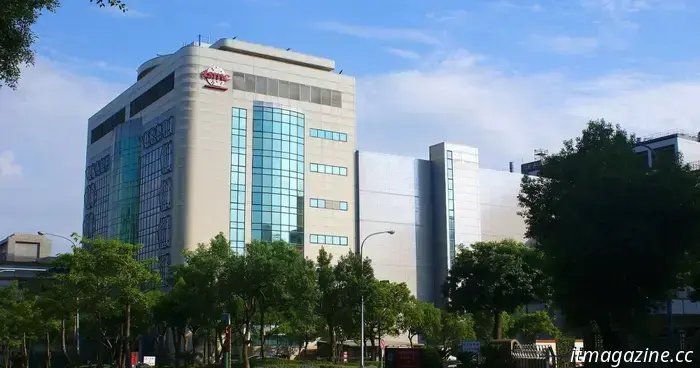
Your upcoming smartphone has received a significant upgrade in performance and battery life.
Taiwan Semiconductor Manufacturing Company (TSMC) is making significant progress towards its next-generation 2nm process technology, with industry demand already surpassing expectations. While mass production is not expected to commence until late 2025, a report from Taiwanese source Ctee indicates that major chipmakers such as Apple, Nvidia, AMD, Qualcomm, MediaTek, and Broadcom are already seeking early access, highlighting the importance of this technology for future devices.
Speculation suggests that Apple intends to utilize 2nm chips in its iPhone 18 line-up in 2026, while Nvidia is taking a more cautious approach, with its next-generation platform likely to remain on the 3nm node.
The 2nm node stands out due to its implementation of Gate-All-Around (GAA) transistor architecture, moving away from the FinFET design that has dominated multiple chip generations. GAA is said to provide improved control over current flow and leakage, resulting in a 15% performance increase and a 30% reduction in power consumption.
Reports indicate that TSMC has begun trial production for its 2nm process at its facility in Baoshan, Hsinchu, with full mass production anticipated in the fourth quarter of 2025 and an initial monthly output of 30,000 wafers. Another facility in Kaohsiung is expected to start mass production in the first quarter of 2026 with the same monthly output. By 2027, TSMC aims to increase total 2nm production across both sites to 120,000–130,000 wafers monthly, potentially achieving 50,000 wafers by the end of 2025 and 80,000 if scaling proceeds as planned.
Furthermore, TSMC is accelerating expansion efforts at four fabs in Baoshan and three in Nanzi, Kaohsiung, investing over NT$1.5 trillion (about USD 50 billion) to establish the world’s largest semiconductor hub. In the U.S., TSMC’s facility in Arizona plans to launch 2nm and future 1.6nm (A16) processes by 2028.
The robust early demand indicates that 2nm chips could become prevalent in high-end devices starting in late 2025 and beyond. Although it may take time for this technology to reach mid-range products, consumers can anticipate substantial improvements in performance and efficiency from devices utilizing 2nm silicon.
Kunal Khullar is a computing writer at Digital Trends, contributing to various topics, including CPUs, GPUs, monitors, and more.
Intel’s forthcoming GPUs have surfaced in a significant leak. The company’s debut in modern graphics cards encountered several challenges, while its Arc Alchemist GPUs faced numerous delays and issues. Now, further problems have arisen, as it appears Intel’s GPU plans for 2023 and 2024 have been fully leaked. The information comes from the YouTube channel RedGamingTech, which claims to have uncovered Intel’s official roadmap for its discrete graphics cards.
In another significant development, TSMC is preparing for a substantial price hike, which could be troubling news for gamers. If you believed that the latest graphics cards and top CPUs were already costly, the upcoming generation of PC hardware may come as an unwelcome surprise. A recent report indicates that TSMC's 3nm wafers will be much more expensive, likely impacting the prices of many next-gen products, especially the high-end CPUs and GPUs commonly used in gaming setups.
Additionally, AMD has provided a compelling reason to prefer Team Red over Nvidia's Team Green with a powerful driver update earlier today. The Adrenaline 22.7.1 driver update delivers an impressive 92% performance boost for AMD Radeon GPUs, along with several quality-of-life enhancements. This news was unexpectedly released by AMD in a note on their website, which mentions increased performance in refresh rates for several GPU lines, including the 6900 series, 5700 series, and Vega series.




Other articles
 One of our preferred digital drawing tablets is available at a 21% discount on Amazon.
The Wacom Intuos Pro Medium, included in our top drawing tablets list, can be purchased from Amazon with a $81 discount, reflecting a 21% price reduction.
One of our preferred digital drawing tablets is available at a 21% discount on Amazon.
The Wacom Intuos Pro Medium, included in our top drawing tablets list, can be purchased from Amazon with a $81 discount, reflecting a 21% price reduction.
 Three rom-coms on Netflix that you should check out in May 2025.
Our selections for three romantic comedies on Netflix to enjoy in May feature a baseball-themed drama, a comedy starring Ryan Gosling, and a delightful tale about an engagement.
Three rom-coms on Netflix that you should check out in May 2025.
Our selections for three romantic comedies on Netflix to enjoy in May feature a baseball-themed drama, a comedy starring Ryan Gosling, and a delightful tale about an engagement.
 Sony's Xperia 1 VII is on the way, but its worldwide launch may encounter postponements.
The Sony Xperia 1 VII will be arriving soon, but it appears that many of us may have to wait longer than originally anticipated.
Sony's Xperia 1 VII is on the way, but its worldwide launch may encounter postponements.
The Sony Xperia 1 VII will be arriving soon, but it appears that many of us may have to wait longer than originally anticipated.
 As game prices increase, I need to become a more selective player.
The cost of video games is increasing, which is prompting more players to be careful and thoughtful shoppers.
As game prices increase, I need to become a more selective player.
The cost of video games is increasing, which is prompting more players to be careful and thoughtful shoppers.
 Soundboks is offering free gifts with the purchase of a Bluetooth speaker.
Between May 1 and May 15, when you buy the Soundboks 4 or Soundboks Go, you will receive either The Backpack or The Battery at no cost!
Soundboks is offering free gifts with the purchase of a Bluetooth speaker.
Between May 1 and May 15, when you buy the Soundboks 4 or Soundboks Go, you will receive either The Backpack or The Battery at no cost!
 Ram brings back the 1500 Express trim as a budget-friendly choice.
Ram is bringing back the Ram 1500 Express trim as a budget-friendly choice.
Ram brings back the 1500 Express trim as a budget-friendly choice.
Ram is bringing back the Ram 1500 Express trim as a budget-friendly choice.
Your upcoming smartphone has received a significant upgrade in performance and battery life.
TSMC plans to begin mass production of 2nm chips by the fourth quarter of 2025.
